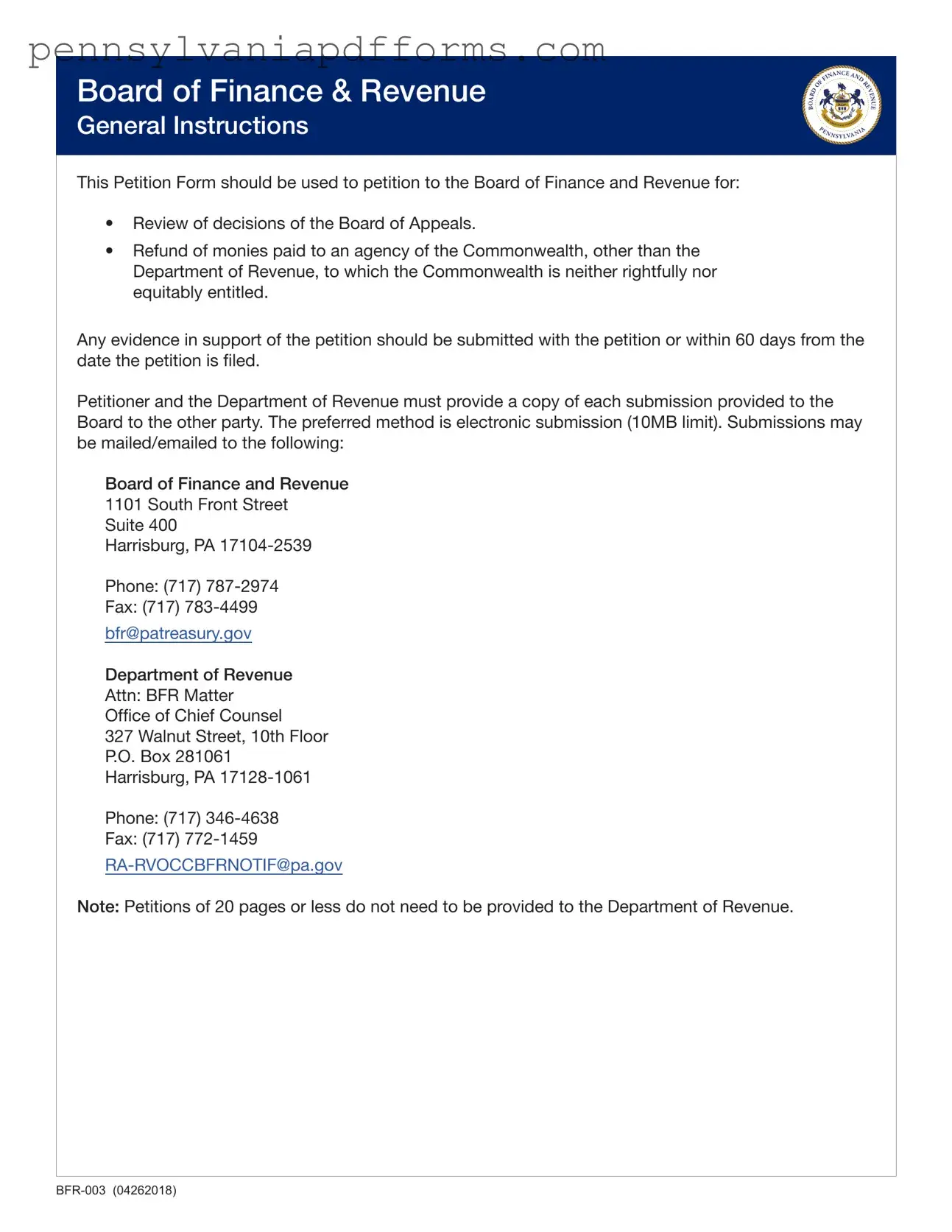The Pennsylvania Petition form shares similarities with the IRS Form 843, which is used to claim a refund or request an abatement of certain taxes. Both documents require the petitioner to provide specific details about the tax issue at hand, including the type of tax and the amount in question. Like the Pennsylvania Petition, the IRS Form 843 necessitates supporting documentation to substantiate the claim, emphasizing the importance of thorough evidence submission.
Another comparable document is the California Board of Equalization Petition for Redetermination. This form is utilized to contest tax assessments and includes sections for detailing the reasons for the appeal. Both forms require the petitioner to state their case clearly and provide relevant facts, ensuring that the reviewing authority has sufficient information to make an informed decision.
The New York State Petition for Administrative Review is also similar in nature. It is used to challenge decisions made by the Department of Taxation and Finance. Both forms require a clear statement of the issues being contested and the basis for the appeal. Each petition must be signed by the petitioner or an authorized representative, reflecting the necessity of accountability in the submission process.
The Texas Comptroller’s Office has a similar form, the Request for Hearing on Tax Matters. This document allows taxpayers to appeal decisions regarding tax assessments. Like the Pennsylvania Petition, it requires detailed information about the taxpayer, the tax type, and the amount being disputed. The importance of timely submission and adherence to procedural rules is a common theme across both forms.
Understanding the various forms used in administrative processes can lead to more effective communication and resolution. For example, the Ohio Lease Agreement form, like the Pennsylvania Petition, is designed to clearly outline terms and responsibilities, helping both parties avoid potential misunderstandings. Those interested in this agreement can refer to the PDF Document Service for a comprehensive template that ensures all necessary details are included, promoting a smoother renting experience.
The Florida Department of Revenue also utilizes a Petition for Review form. This document is employed to contest tax assessments or denials of refunds. Both the Florida and Pennsylvania petitions require the inclusion of supporting documentation and a clear explanation of the relief sought. The structured format helps ensure that all necessary information is presented for review.
In Illinois, the Department of Revenue offers a Petition for Adjustment of Tax. This form serves a similar purpose, allowing taxpayers to dispute tax liabilities. Both forms require the petitioner to outline the reasons for their appeal and provide evidence to support their claims. The procedural requirements, including deadlines for submission, are critical to both processes.
The Massachusetts Department of Revenue has a comparable document known as the Application for Abatement. This form is used to request a reduction in property tax assessments. Similar to the Pennsylvania Petition, it requires detailed information about the taxpayer and the tax issue. The emphasis on submitting supporting documents is a shared characteristic, highlighting the need for thoroughness in tax-related appeals.
The Virginia Department of Taxation utilizes a Request for Refund form, which allows taxpayers to seek refunds for overpayments. This document parallels the Pennsylvania Petition in that it requires a clear statement of the refund request and supporting evidence. Both forms aim to facilitate a fair review process by providing a structured approach to presenting tax disputes.
Lastly, the Ohio Department of Taxation offers a Tax Appeal form, which is used to contest tax assessments. Similar to the Pennsylvania Petition, it necessitates a detailed explanation of the reasons for the appeal and the desired outcome. Both forms underscore the importance of clarity and completeness in presenting one’s case to the relevant authorities.





